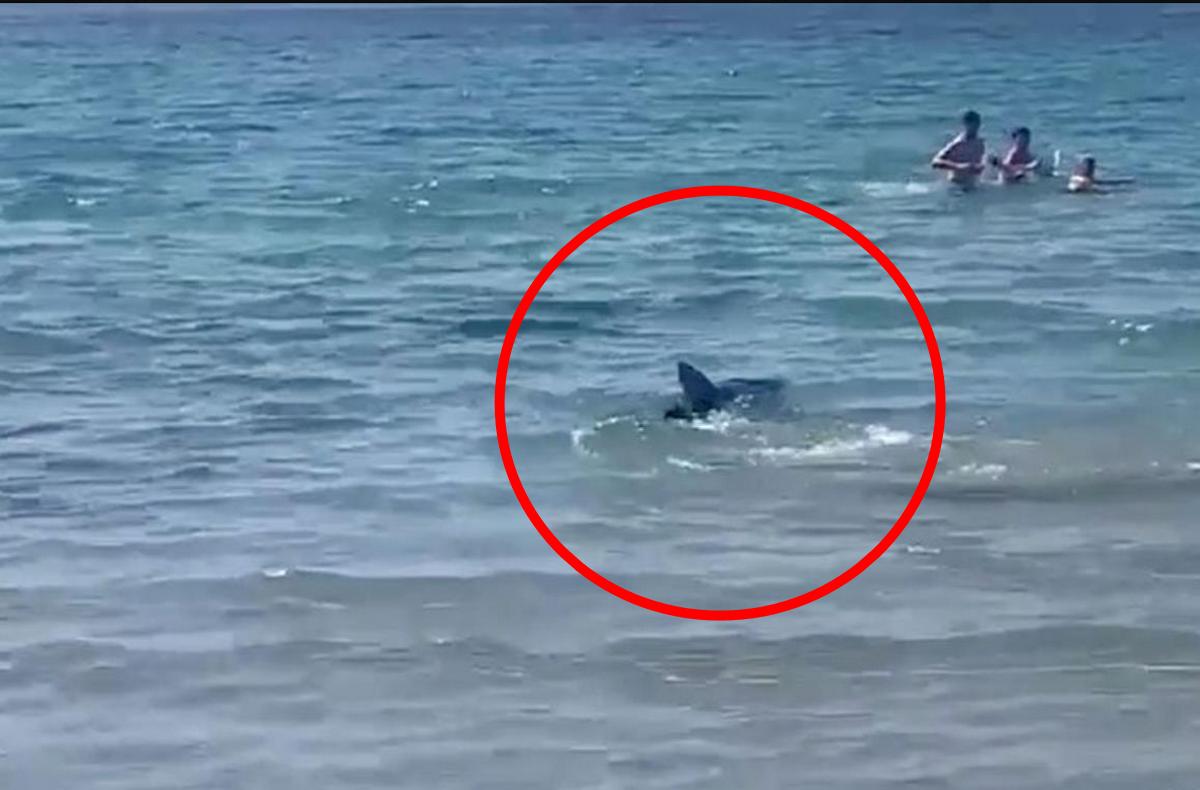Disturbing events unfolded on a popular and now overcrowded beach on the Spanish island of Mallorca. It was there on August 3 that a species of shark dangerous to humans passed through the shallow water, after which rescuers began shouting warnings into megaphones, and tourists jumped out of the water in horror.
According to the British portal The Mirror, the predator was discovered on the beach of Playa de Palma between Can Pastilla and El Arenal, where many British, German, and Dutch tourists go to rest, while Ukrainians also come there, but in smaller numbers.
It was clarified that a blue shark (tintorera) – a dangerous species for humans – swam to the coastline, several dozen unprovoked attacks of blue sharks on people were previously recorded, some of which ended in the death of the victims. Noticing the approach of the sea predator, the rescuers rushed to the megaphones to alert the swimmers. As a result, a crowd of tourists rushed from the water to the shore. Fortunately, no one was hurt by the shark’s jaws. She swam in shallow water along the beach and then disappeared into the depths.
This is not the first case in this area. In June of this year, several sharks were already spotted off the coast of the Balearic Islands and the Costa Blanca. One blue shark was filmed at Calo de Molton in Ibiza, which is a popular diving spot.
Note that this is not the first time this season that a “toothy danger” has been spotted off the coast of the Balearic Islands:
- In June, several sharks were spotted off the coast of the Costa Blanca. For example, on June 24, a two-meter blue shark caught the eyes of tourists in Calo de Molton – a small pebble bay in the north of Ibiza – a popular place for scuba diving.
- A week earlier, a shark caused panic on the beach of Aguamarina in Orihuela Costa, south of Alicante.
- On the same day, there was a report that a shark of the same species had been spotted in the port of Citadel in Menorca.
- And earlier, a toothy predator swam to the boat and scared fishermen off Cape Formentor near Puerto Pollensa in Majorca.
Blue sharks are dangerous for humans, but not always
There have been cases of blue sharks attacking humans in the past, but such cases are very rare. Experts say the chance of being attacked by a shark is low, and unprovoked attacks have declined over the past decade. As noted by oceanographer Gador Muntaner, blue sharks usually come close to shore because of weakness, disorientation, or the presence of parasites, not because they need to grab swimmers. He also emphasized that blue sharks are usually not dangerous for humans. “It is almost impossible for a dyer to kill someone. It is much more likely that you will be struck by lightning,” said the specialist.
However, there were attacks. For example, one of them attacked a vacationer in Elchi near Alicante in July 2016. The 40-year-old victim was rushed to the hospital, where he was stitched up for a wound on his hand. Overall, there were 57 unprovoked bites worldwide in 2022, well below the 10-year average of 74 unprovoked bites per year, according to the University of Florida.
What should a tourist do who has not had time to get out of the water and there is a shark nearby?
Robert Latour, professor of marine sciences at the Virginia Institute of Marine Sciences, told CBS News what a tourist should do if he or she is unlucky enough to come across a marine predator. “The best approach is to stay calm and defend yourself. Make eye contact with the shark and use a hard object or your hands to hit it in the nose, gills, and eyes. If you see a shark before it attacks, position yourself to avoid being bitten in the neck or face. Try to get out of the water as soon as possible, but do not turn your back and swim away from it,” the expert instructed.

